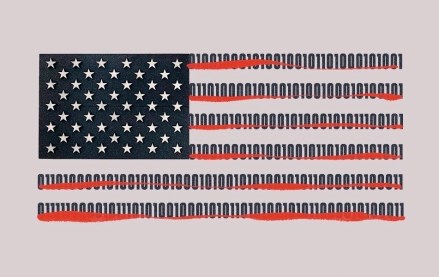‘Everyone is under a lot of pressure’: Marketers feel a sense of uncertainty ahead of the ANA conference

This week, marketers once again descend upon Orlando, Florida, for the Association of National Advertiser’s Annual Masters of Marketing conference. Among attendees and industry observers, there’s a palpable sense of uncertainty about the state of the industry — and mild annoyance that Advertising Week and the ANAs are back-to-back this year — ahead of this week’s presentations from brands like Chipotle, Procter & Gamble and Anheuser-Busch.
Be it the looming threat of an economic downturn, the potential impact of regulations like CCPA, the need to figure out how to stand out with the growing noise of the 2020 election or the ever-changing role of the CMO, the most pressing issue will vary depending on who you talk to. It’s a tumultuous time and one that isn’t easy for marketers, especially those looking for consistency.
There’s “tremendous pressure from external forces,” said Jay Pattisall, principal analyst at Forrester.
At the ANA, the threats marketers discuss may change each year, but the presence of those threats may be the one constant marketers can count on. That said, it’s not all doom and gloom. Overall, the mood of marketers is one of “cautious optimism,” according to agency sources who understand that, as 4A’s president Marla Kaplowitz put it. “Everyone is under a lot of pressure – that’s the reality these days.”
Here’s what marketers will be talking about this week.
The return of brand building
This year, P&G’s chief brand officer Marc Pritchard will pitch fellow marketers on the need to reinvent brand building in a world where marketers have enough data to personalize messages for each consumer. Pritchard isn’t alone, marketers from Dunkin’ to Chipotle to digitally native Postmates will also tout the power of building a brand consumers actually care about. There’s a realization that having data on consumers and being able to target them with your brand message with performance marketing — a tactic DTC brands perfected and legacy brands are still trying to figure out how to master — isn’t enough to win the day if a brand doesn’t have a message that resonates with consumers.
“You’re starting to see this fundamental shift in how executives and directors of marketing look at the ‘brand’ and how they’re trying to redefine what it means for their organization,” said Faheem Siddiqi, CEO and founder of performance marketing agency SocialWithin.
Absence of DTC
That shift comes as DTC brands have challenged not only legacy brands’ market share but how they go to market. While DTC brands dominated Advertising Week, their absence may be felt at the ANAs where, at least on stage, there won’t be any major DTC brands presenting. That may be due to the lack of interest in the ANAs from DTC brands as well as legacy brands’ reluctance to hear lessons from DTC brands, according to agency sources, who added that while legacy brands are no longer dismissive of DTC there’s still a tension there, even as some like P&G recognize the need to add DTC brands to their portfolios.
“From the DTC CMO perspective, I wonder if they see as much value in events like the ANA as traditional brands and agencies do,” wrote Husani Oakley, director of technology and innovation, Deutsch NY, in an email.
Metric Digital CEO Kevin Simonson put it more bluntly: “DTC brands, frankly, couldn’t give a shit about the ANAs.”
In-housing will continue
In recent years, marketers have been focused on taking greater control of their brands by moving marketing practices like media buying or creative in-house or through finding ways to own more data about their consumers. That will continue to be a big topic of discussion at the ANA this year, especially when it comes to the looming threat of an economic downturn and the changes to come from the implementation of CCPA. “When shit hits the fan, you want to be able to say, ‘I own this,’” said Mark Wagman, managing director at Medialink, adding that in these uncertain times, marketers want to be certain they have what they need to connect with consumers. “It’s almost like a doomsday kit. This is the time to do it.”
Forrester’s Pattisall expects marketers to discuss how they’ve taken more media and programmatic capabilities in-house this year. “But CMOs and marketers should consider that the technology and talent investments for programmatic media operations are not insignificant and do not align with their current cost efficiency mindset for [in-housing],” wrote Pattisall in an email. According to Digiday Research, 53% of marketers said they were handling the majority of their marketing in-house.
Election 2020
As with Advertising Week, the 2020 election will likely be a major topic of discussion even if there aren’t sessions focused on the election itself. Part of that focus comes from the higher cost of advertising on digital platforms with the onslaught of election advertising as well as the difficulty in standing out when consumers are inundated with messaging from political candidates.
“It can get quite expensive very quickly,” said Siddiqi of digital advertising prices during election season.
“As CMOs grapple with how to cut through the clutter of the $200 million or so in election advertising spend and concerns for how the election will continue to erode public trust in institutions — including media and brands,” wrote Pattisall.
That potential for the election to hurt trust between brands, platforms and consumers, especially when it comes to data privacy, will certainly be a hotly debated topic, even if it’s not overtly on the agenda, according to attendees.
“We can’t focus enough on the importance of trust in the industry and with our customers,” wrote Jacki Kelley, president and chief client officer, Dentsu Aegis Network, in an email. “Consumers still want personalization, but there needs to be an absolute respect for their data and their privacy. In many ways this can also be a brand differentiator. Dentsu’s recent CMO Survey found that 73% of high-growth U.S. CMOs agree that data protection legislation represents an opportunity to build trust with our consumers versus only 22% of non-growth CMOs.”
More in Marketing

Q1 ad rundown: there’s cautious optimism amid impending changes
The outlook for the rest of the year is a tale of two realities.

WTF is the American Privacy Rights Act
Who knows if or when it’ll actually happen, but the proposed American Privacy Rights Act (APRA) is as close as the U.S. has ever come to a federal law that manages to straddle the line between politics and policy.

Here’s how some esports orgs are positioning themselves to withstand esports winter
Here’s a look into how four leading esports orgs are positioning themselves for long-term stability and sustainability, independent of the whims of brand marketers.






